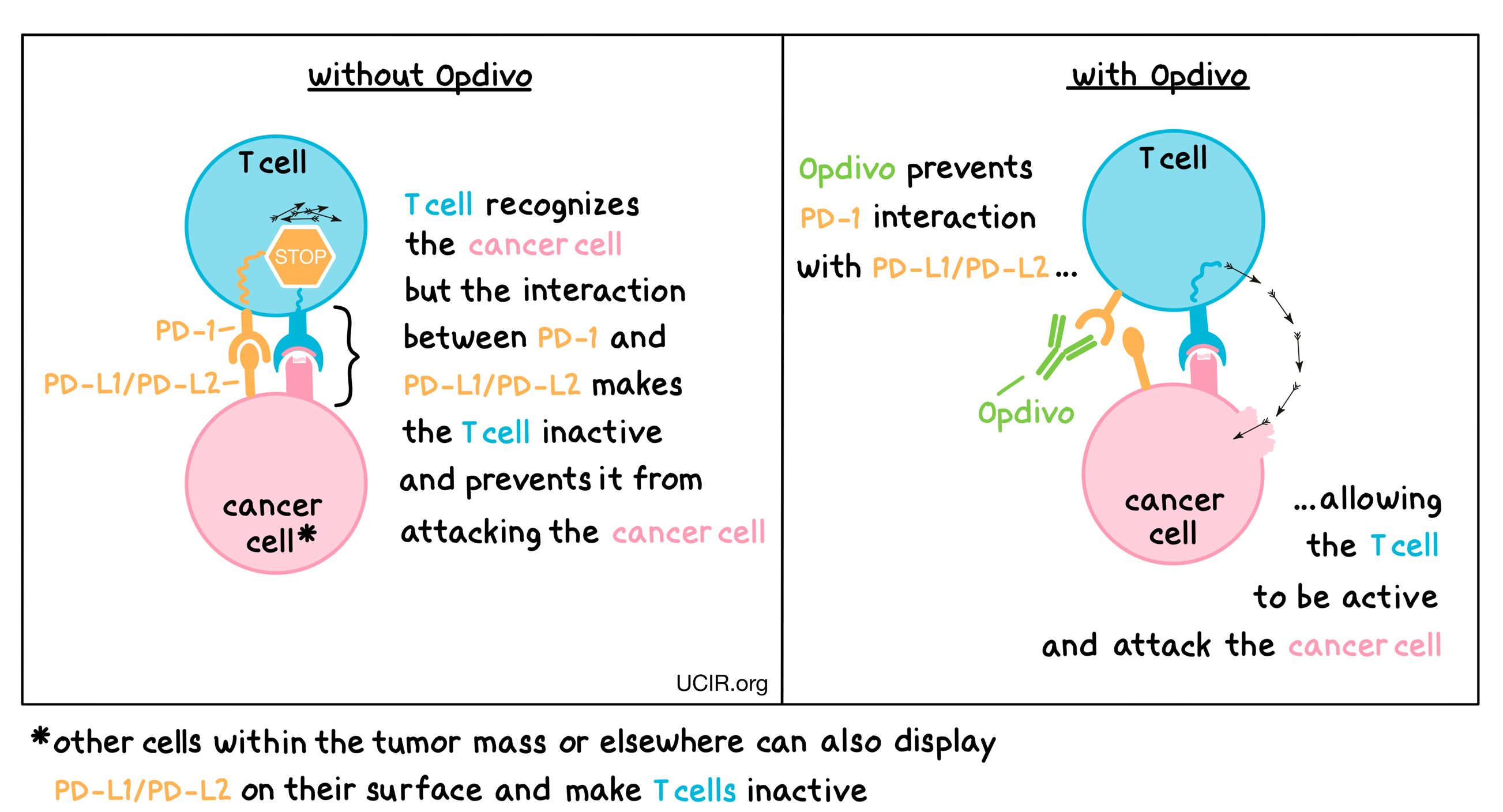- Published on
Stomach Cancer Treatment: Nivolumab
- Authors
- Name
- Jake Konigsberg
- Role
- Founder
Approved by the Food and Drug Administration in April 2021, nivolumab (sold under the brand name OPDIVO) is used to treat advanced or metastatic gastric cancer. Nivolumab can be used to treat many different types of cancers and is a drug known as a systemic immunotherapy treatment, meaning it is a drug that travels through the blood and uses one’s own immune system to fight diseases. Since nivolumab is systemic and travels through the bloodstream, it needs to be injected into the bloodstream, so it is most often administered intravenously.
Nivolumab has been found to be rather successful in treating cancers like metastatic gastric cancer as a first-round form of treatment. Nivolumab works by blocking the function of programmed cell death protein-1 (PD-1). This protein exists on the surface of T cells (a type of white blood cell that protects the body from infection) and regulates T cells’ response to cells in the human body. More specifically, PD-1 causes one's immune system to be tolerant toward one’s own cells ensuring that the immune system does not attack oneself. However, for cancers, where one’s own cells grow and divide uncontrollably, forming a tumor, PD-1 prevents the immune system from fighting the tumor and cancerous cells. As a result, the tumor can grow and cancer can spread. By blocking the function of PD-1, nivolumab enables T cells to recognize and attack inflamed tissue and cancer cells.
While nivolumab can cause many symptoms they are often manageable. Symptoms range in severity. This treatment can cause symptoms including back pain, blurred vision, joint pain, depressed mood, cough, palpitations, hair loss, vomiting, and breathing trouble. 